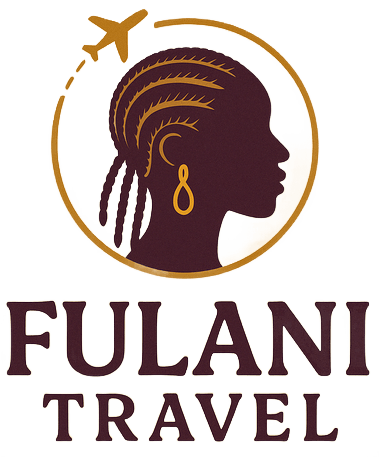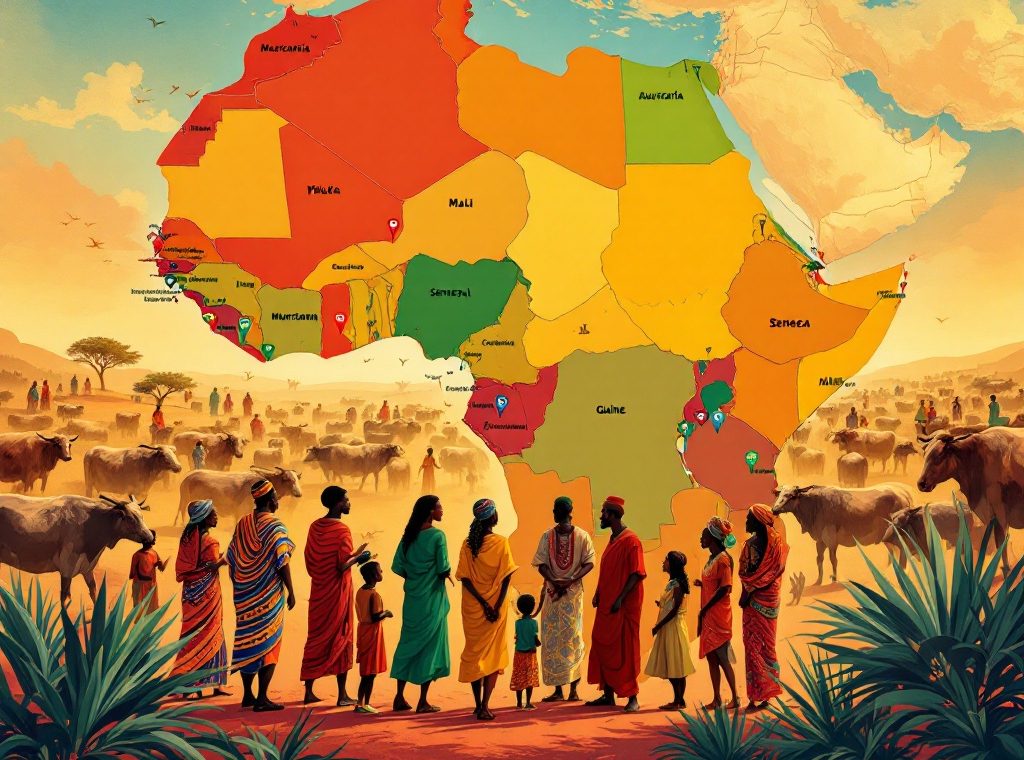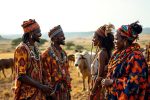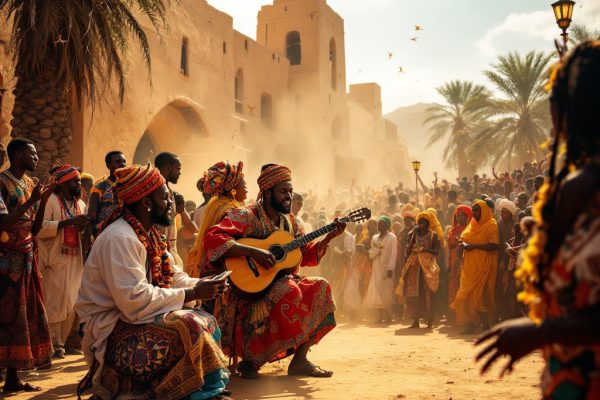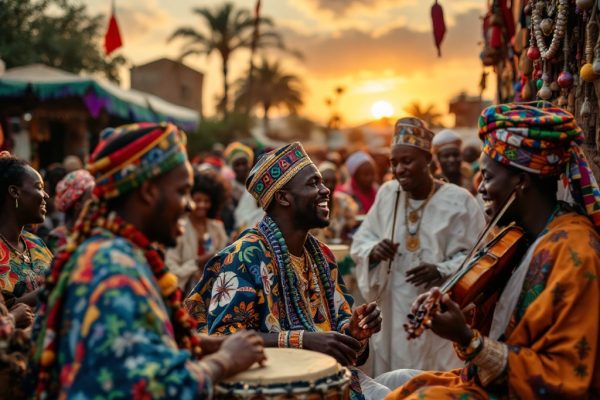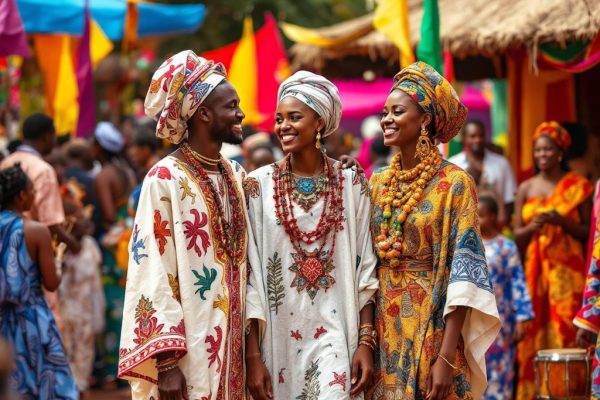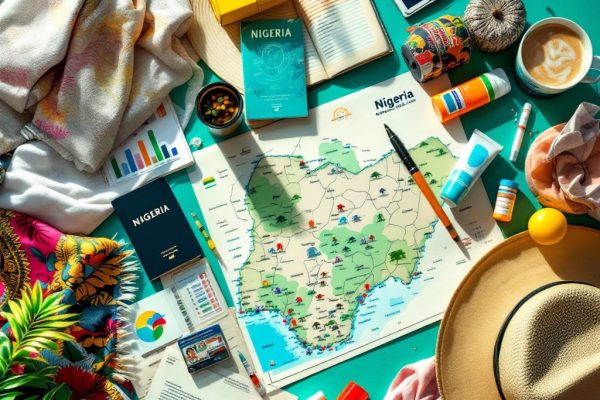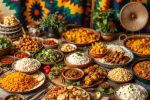Where Is Fulani Spoken: Countries and Communities That Use the Language
Discover the fascinating Fula language, spoken by 36.8 million people across West Africa! From its official status in Mauritania to its role as a vital communication bridge in nations like Senegal, Guinea, and Mali, Fula connects diverse communities. Explore the rich cultural tapestry of the Fulani people, their nomadic heritage, and the code of pulaaku that shapes their values. Delve into the various dialects, from Pulaar to Fulfulde, and learn how this vibrant language thrives even in diaspora communities like New York City. Uncover the world of Fula and its impact today!
Important information
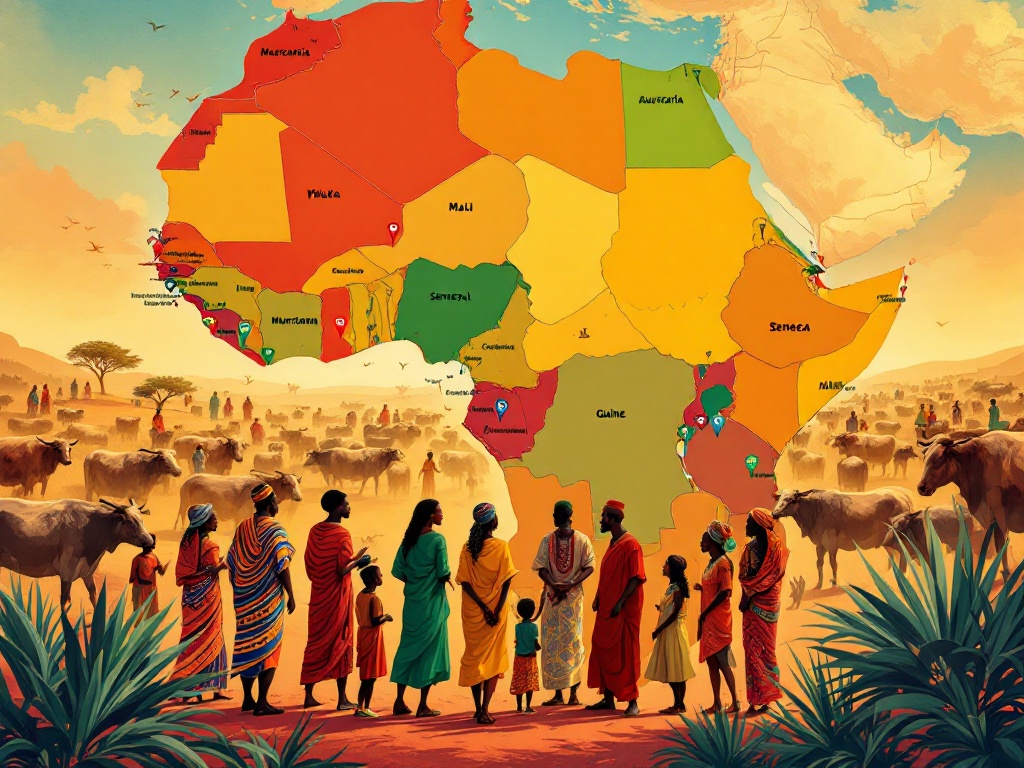
- Fula is spoken by about 36.8 million people across Africa, primarily in West Africa.
- It’s a vital lingua franca, bridging communication between diverse language communities.
- While numerous dialects exist (like Pulaar and Fulfulde), they are mostly mutually intelligible.
- The Fulani people, traditionally nomadic pastoralists, have a rich culture intertwined with their language, including a code of conduct called pulaaku.
- Fula has official status in several countries, including Mauritania, Senegal, Mali, and Burkina Faso, yet is also spoken in numerous other countries across West Africa.
Introduction to the Fula Language
Fula, a language spoken by roughly 36.8 million people, serves as a common tongue across numerous African nations, including Mauritania where it holds official status. This widespread use connects individuals across a vast geographical region.
About the language
While the Fula language encompasses various dialects, such as Fulfulde and Pulaar, these variations remain largely mutually intelligible.
These dialects are grouped into four main branches:
- eastern,
- east central,
- west central,
- and western.
About the culture
For the Fula people, whose heritage is deeply rooted in nomadic pastoralism, their language is inextricably linked to their cultural identity.
Their rich traditions, embodied in the code of conduct known as pulaaku, emphasize virtues like courage, modesty, patience, and wisdom. Furthermore, Fula culture boasts a vibrant artistic tradition, with literature, music, and folktales all serving to express its core values.
What Is the Fula Language?
Fula serves as a vital communication bridge across West Africa, spoken by the Fula people and related groups. It acts as a lingua franca, facilitating understanding between diverse language communities. Numerous dialects exist, such as Pulaar and Fulfulde, and variations even occur within these, including Maasina and Adamawa Fulfulde. This diversity showcases the rich tapestry of the Fula language.
Number of Fula Speakers Worldwide
Fula, also known as Fulfulde, Pulaar, or Pular, is spoken by 36.8 million people globally.
Countries Where Fula Is Spoken
Fula is widely spoken across West Africa, in countries such as Benin, Burkina Faso, Cameroon, Gambia, Guinea, Guinea-Bissau, Mali, Niger, Senegal, and Sierra Leone.
Fula in Niger, Senegal, and Guinea
Niger’s large Fulani population makes Fula a common language. It’s officially recognized in Senegal, where it has a substantial number of speakers. Guinea’s sizable Fulani community also contributes to Fula’s prevalence.
Fula in Mali and Burkina Faso
Fula enjoys official status in Mali and is spoken by a large segment of the population. Burkina Faso also recognizes Fula officially, where it’s spoken by a significant portion of its people.
In contrast to its official status in several countries, Fula remains a minority language in Cameroon. While a notable population speaks Fula in Benin, smaller communities exist in Gambia and Guinea-Bissau. It’s also spoken within certain communities in Sierra Leone. Mauritania does not recognize Fula as an official language.
Fula in West Africa
Fula is widely spoken across West Africa, particularly in Nigeria, Senegal, Guinea, Cameroon, Mali, Burkina Faso, Niger, and Mauritania. Smaller communities exist in Chad, Guinea-Bissau, Gambia, and Sierra Leone. Serving as a lingua franca across several regions, Fula boasts numerous dialects, including Pulaar and Fulfulde. Pulaar is common in Senegal, Guinea, and Mauritania, while Fulfulde is prevalent in Nigeria, Cameroon, Niger, and Mali.
Countries where Pulaar is common:
- senegal,
- guinea,
- mauritania.
Countries where Fulfulde is prevalent:
- nigeria,
- cameroon,
- niger,
- mali.
Niger
In Niger, Fula is a national language. It is primarily divided into two main dialects: eastern and western. The Boboye district marks the separation between these dialects. Further regional variations exist across the country.
Senegal
Due to Senegal’s substantial Fulani-speaking population, the Fulani language holds significant importance in West Africa.
Guinea
Fula, the language of the Fulani, Guinea’s largest ethnic group, holds a prominent place in the country.
Mali
Fula’s official inclusion in Mali’s education system, specifically its use in primary schools, has contributed to improved literacy rates. This approach also fosters cultural relevance, connecting education to students’ heritage.
Burkina Faso
Fula is widely spoken throughout Burkina Faso, particularly in the northern and eastern regions. There, it serves as a vital language for commerce, social interaction, and cultural expression.
Cameroon
Fula is a national language in Cameroon, primarily spoken by the Fulani people in the northern region.
Benin
Benin recognizes Fula as a spoken language, primarily used in the northern regions by the Fulani people.
Gambia
In Gambia, Fula is a minority language, spoken by a smaller portion of the population.
Guinea-Bissau
Fula is spoken in Guinea-Bissau.
Sierra Leone
Fula is a recognized national language of Sierra Leone and is widely spoken there.
Fula as an Official Language in Mauritania
Fula’s official status in Mauritania highlights its regional significance.
Communities and Cultural Identity of Fulani Speakers
The nomadic Fulani, renowned cattle herders, share a rich culture shaped by their way of life. This shared experience fosters a strong sense of community and deeply rooted traditions across West and Central Africa, as well as in diaspora communities worldwide, including vibrant enclaves in New York City boroughs like the Bronx, Harlem, and Brooklyn. Central to Fulani culture is the Fula language, a vital preserver of their oral traditions, history, and values. Their code of conduct, pulaaku, further strengthens their identity by emphasizing virtues such as courage, modesty, and wisdom, providing guidance throughout their lives.
Fulani as Nomadic Pastoralists
The Fulani, the world’s largest nomadic herding group, have a rich history intertwined with the landscapes of West and Central Africa. Millions of Fulani, roughly a third of their population, continue their traditional nomadic lifestyle. They guide their cattle across vast deserts and savannahs, a practice that has deeply influenced their customs and social structures, especially their relationships with settled communities. However, increasing urbanization is changing the Fulani’s way of life, drawing many to towns and cities as they seek to balance tradition with modern living.
Fulani Communities Outside Africa
The
Fulani in New York City: Bronx, Harlem, and Brooklyn
New York City is home to vibrant Fulani communities, primarily located in the Bronx, Harlem, and Brooklyn. These communities demonstrate a remarkable ability to integrate into city life while preserving their unique cultural heritage. The blend of traditional Fulani clothing and customs with the urban landscape adds to the city’s rich diversity.
